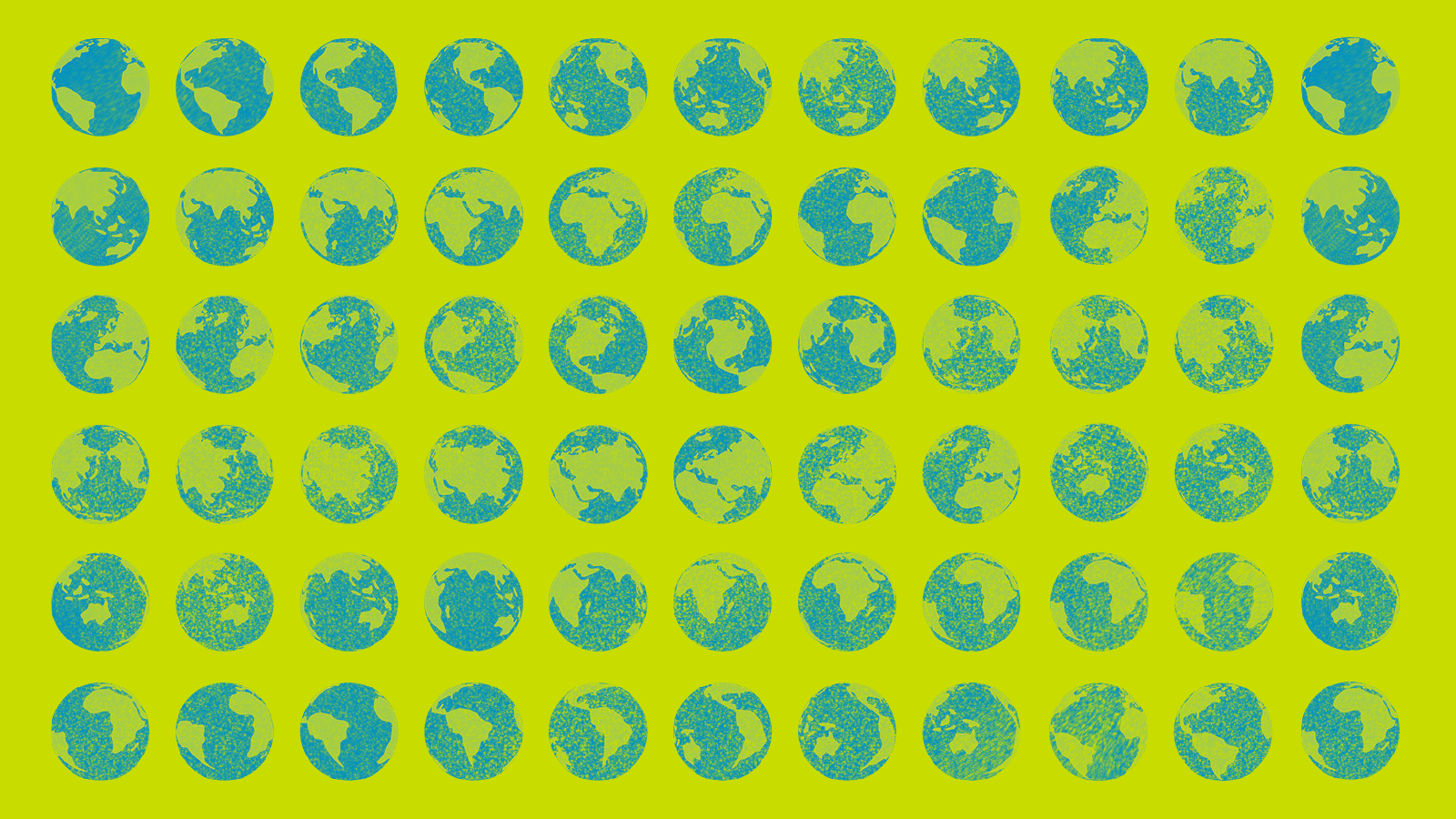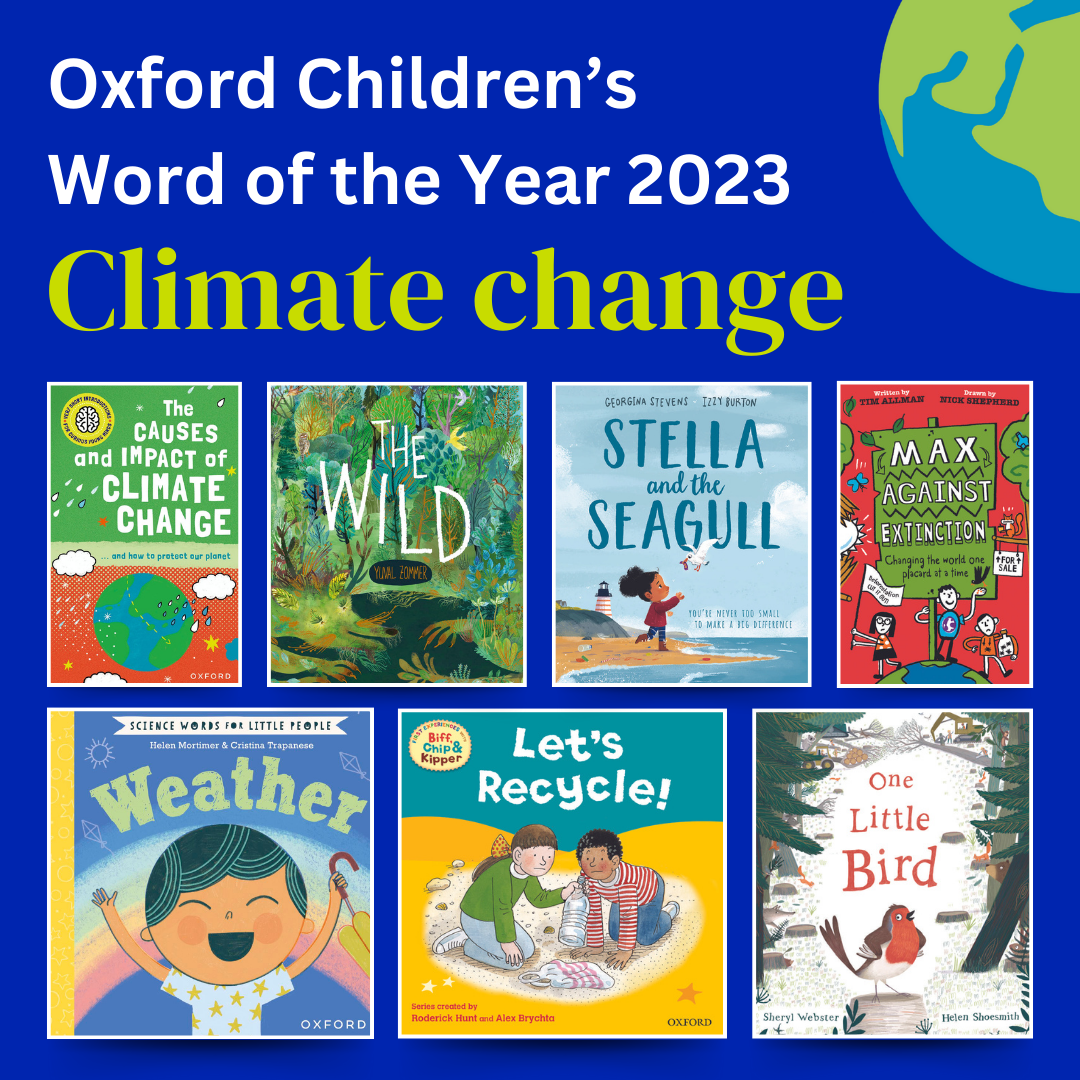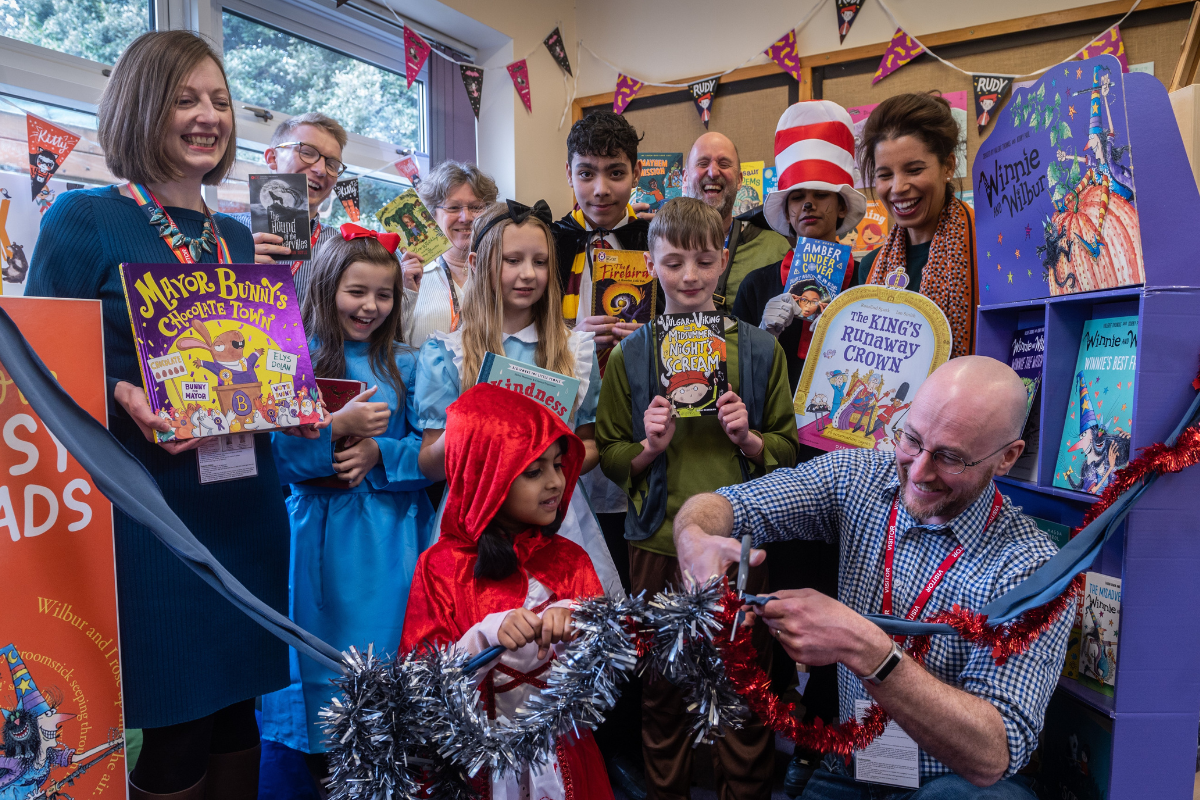Climate change named Children’s Word of the Year for 2023

Young people from across the UK have selected climate change as our Children’s Word of the Year for 2023.
This year marks a decade of our Children’s Word of the Year, as experts and academic researchers in our Children’s Languages department have analyzed the evolution of children’s language and how it is used to reflect their emotions and experiences. In research with over 5,000 children aged 6-14 years old, we asked for their suggestions and opinions about possible words of the year. Based on the most common responses and themes, we shortlisted three words—climate change, war, and coronation—and asked children across the UK to vote for their preferred word. In a close contest, a third of children chose climate change as the word of the year (33%), narrowly followed by war (31%), whilst nearly a quarter of children chose coronation (24%).
Why did young people choose climate change?
Our survey of young people in the UK revealed their desire for climate action, with emotive words such as ‘need’ and ‘important’ occurring frequently in their statements. The impact of climate change on the wider world, their current lives, and the future were cited as the main reason for their choice, and when we asked how the word makes them feel, the most common responses were ‘sad’, ‘scared’, and ‘worried’.
Analysis of the Oxford Children’s Corpus, the largest children’s English language database in the world containing over half a billion words, showed that the topic of climate change is regularly written about by children. Studying the most recent addition to the Children’s Corpus—the stories submitted for the BBC 500 Words 2023 story competition—’stop’ is revealed as the most common word used in a climate context, underlining children’s resolve to change the course of climate change.
The impact of current affairs on children’s language
The results also demonstrated the impact of current affairs on children’s language. When we asked those who selected war why they had done so, more than one in ten (13%) mentioned the ‘news’. Almost a quarter (23%) referenced the conflict in the Middle-East or the war between Russia and Ukraine.
The coronation of King Charles III was another key event in 2023 which impacted children, with many who selected coronation also citing words such as ‘celebration’.
Bro revealed as the top slang word amongst children
Other findings from our research revealed the top slang words used by children, with bro being voted the most popular term by 42% of children, followed by lol (24%) and slay (17%). Along with bro being used as an informal term to address friends, our research found that children also used it as a ‘positive politeness’ strategy to confirm solidarity with another person whilst expressing admonishment.
A selection of our books for children on the topic of climate change:
- Very Short Introduction for Curious Young Minds: The Causes and Impact of Climate Change by Clive Gifford
- The Wild by Yuval Zommer
- Stella and the Seagull by Georgina Stevens, illustrated by Izzy Burton
- Max Against Extinction by Tim Allman, illustrated by Nick Shepherd
- Science Words for Little People: Weather by Helen Mortimer, illustrated by Cristina Trapanese
- Biff, Chip, and Kipper: Let’s Recycle! by Rod Hunt, illustrated by Alex Brychta, Kate Ruttle, and Annemarie Young
- One Little Bird by Sheryl Webster, illustrated by Helen Shoesmith

Speaking about the results of the 2023 Children’s Word of the Year, Helen Freeman, Director of Oxford Children’s, said:
“This year marks the tenth year of Children’s Word of the Year, and over the decade we have seen the significant role current affairs plays for children’s language development. The choice of ‘climate change’ not only demonstrates how attuned children are to the news and their environment, but the research also reveals their willingness to engage with meaningful change. Whether it’s understanding how children use slang phrases or what word reflects the past year, it’s imperative we continue to support children’s language development so they have the means and vocabulary to express themselves.”
Given the choice of word, we were keen to hear directly from children on the topic. Kids Against Plastic is a charity founded by children for children, who are all passionate about looking after our environment. Amy Meeks, CEO and co-founder of the charity, said:
“Through our work with young people, we’ve seen first-hand how willing children are to learn and engage with topics like climate change, so we’re not surprised to see it selected as Children’s Word of the Year. Sometimes we greatly underestimate children’s abilities to understand complex issues, so it’s encouraging that this research shows children are engaged and understand the impacts of climate change. We also mustn’t ignore the findings from the language research which demonstrate young people’s desire for action. Young people not only recognize that climate change is an issue, but they’re also seeing the importance of tackling it. No-one will feel the negative effects of climate change more than the next generation – or the positive effects of the action we take against it now.”
In response to the latest findings, our children’s language experts have published the Oxford Children’s Word of the Year 2023 report, which is available to read now.




